CAMBRIDGE, Mass.—Helen Adeosun made her mark as a striver before she was old enough to drive. At 14, she appeared in a CNN segment on kids and investing, explaining how she followed financial news on mergers and acquisitions and why she believed in saving money. In her early teens, she started a babysitting service. A few years later, she began a lawn-mowing service.
Adeosun’s diligence—and her smarts—eventually got her into graduate school at Harvard, but even a degree from that prestigious institution wasn’t enough to satisfy her.
Her father, George Adeosun, recalled his puzzlement when he noticed that his daughter wasn’t celebrating at the graduation ceremony.
“I asked her how she could be disappointed,” Adeosun said. “She said the reason she was disappointed was because the Small Business Administration did not approve her loan request to start a business.”
Helen Adeosun, co-founder and CEO of CareAcademy, has overcome her disappointment. The business she founded in 2013 in Cambridge, Massachusetts, produces instruction for home caregivers and makes it available on mobile phones or computer tablets. The CareAcademy lessons offer a smoother, individualized way for caregivers to meet credential requirements. The on-demand curriculum also makes training easier for employers, many of whom face a dual crunch: hiring and retaining employees in a high-turnover field at the same time an aging population propels a growing demand for their services.
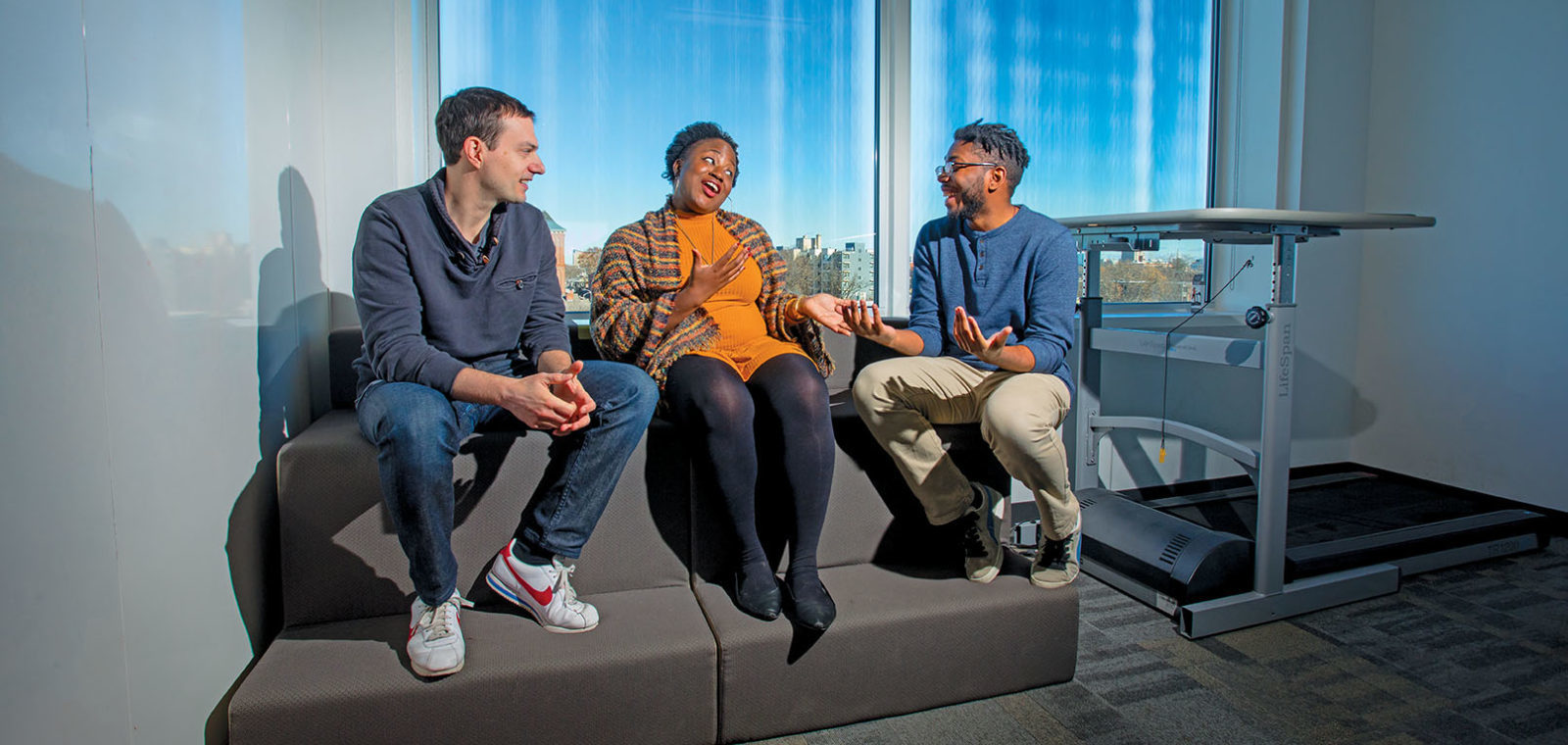
CareAcademy now has nearly 200 home-health companies as clients. Twenty-five thousand home-health workers have completed at least one of the lessons or continuing-education classes it offers. Revenue in the last three months of 2018 grew by 25-50 percent compared with the corresponding months in 2017, Adeosun says. The latest venture: In January, CareAcademy began a pilot program to certify home-health aides.
Mining her experience
Adeosun, a 34-year-old daughter of Nigerian immigrants, explored many fields—including teaching, social work and management—before she launched CareAcademy. She built the company by mining her years of experience as a babysitter, nanny, and home-health worker to create a curriculum of lessons and videos on how to care for people in their homes.
“I say that CareAcademy is actually the confluence of all of those experiences. … I think it’s in my background as the caregiver, as a person who’s worked in public policy, as a person who’s been an educator,” she said.
“For me, entrepreneurship is not about building something that has potential outcomes for wealth or anything like that,” she said. Instead, it’s a strategy for solving deeply entrenched problems. “The tools that you wield are your influence or your power or money, and I think it’s the role of an entrepreneur to use creativity.”
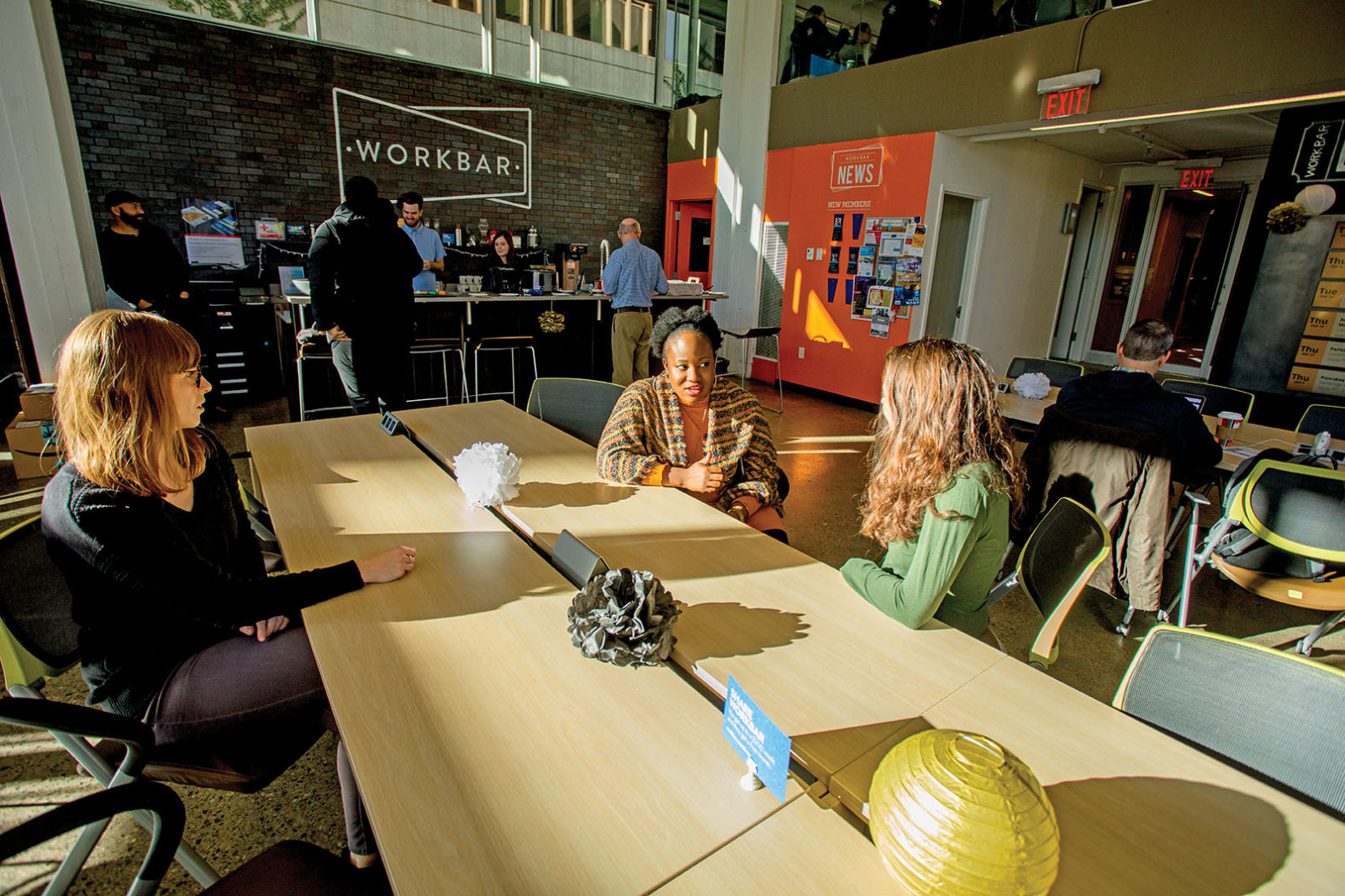
Adeosun’s story begins long before her birth in Nashville, Tennessee, where her parents lived when they came to the United States to attend Fisk University. She cites a tradition of entrepreneurship on both sides of her family, but that’s a huge understatement. A relentless devotion to business has lifted four generations of her family to prosperity, both in Nigeria and the United States.
“The women in my family have had to be entrepreneurs, typically because when Nigeria was colonized and before it was colonized, women supported their families by selling things—goods or wares,” Adeosun said.
“That actually continued through my grandparents and my aunts. Once you learn a trade in a family, that carries on matrilineally, so the women in my family have opened up shops where they are selling khat (an herbal stimulant), where they are selling knick-knacks. My mom went from being a nurse—which really influenced my desire to work in health care—and she’s been a real-estate agent, and she’s now also opened a store in Nigeria. Entrepreneurship … was the way my grandmother and grandfather could send my dad to the best schools in Nigeria and to get his education here in the U.S. For me, entrepreneurship has always been an itch that I have scratched throughout my life.”
Her father, trained as a pharmacist, was also drawn to sales. He now works for a Lexus dealership in Roswell, Georgia, near Atlanta. He was initiated early in life.
“I got my start in sales from my mother, back in Nigeria. She owned a textile business. By the time I was 5 years old, she’d already turned me into a salesperson for her. Everybody in the family worked for my mother, the matriarch,” he said.
For all the inclinations and family momentum that pointed her toward business, Helen Adeosun explored many paths on the way to CareAcademy. She is an accomplished student, with a wide-ranging curiosity about many topics and the intellectual prowess to delve deeply into all of them.
A global perspective
She lived in Nigeria as a toddler and preschooler, long enough for her to learn English and Yoruba simultaneously. Reflecting on these early years, she said they also helped her learn how to move easily among cultures. She learned Spanish as a teen. Then there’s Arabic, her fourth language, and one she learned in response to an inner desire—call it a compulsion—to serve.
“My dad and I had many long conversations about how fortunate we are to be in the U.S. And having a degree of access always means we should think about ways that we are providing access to others and bettering the situation of others—giving back, basically,” she said.
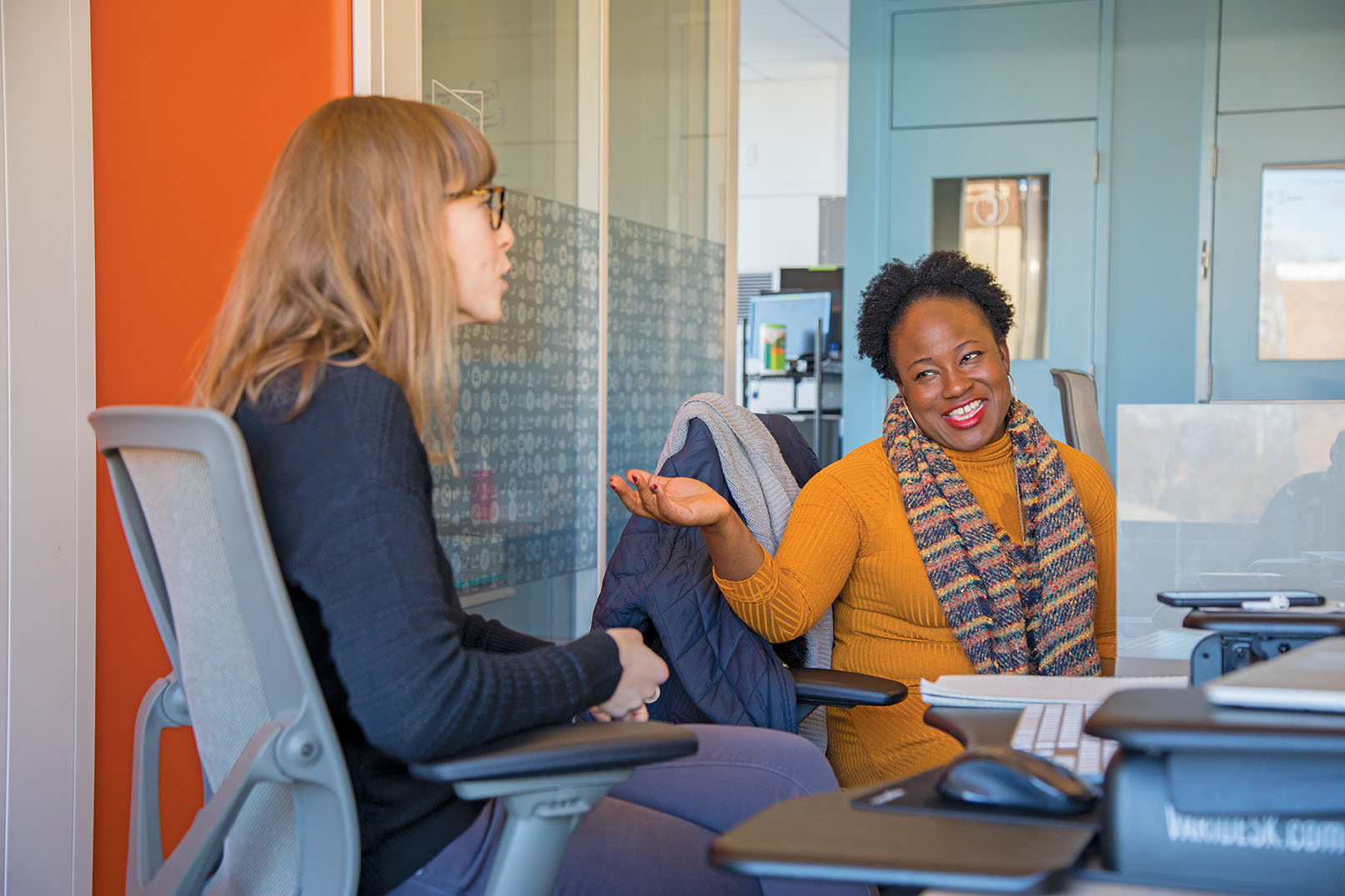
Entering the University of Notre Dame in 2003, Adeosun majored in political science and Arabic studies with an eye toward entering the armed services.
“I originally thought I was going to be in the U.S. military, so I initially entered Notre Dame as a candidate for ROTC. That really was not a good fit. I saw it as a really good way to serve, but I was really conflicted about the war in Iraq and Afghanistan. I won’t go into that too much,” she said. “But I knew that at least speaking or understanding Arabic, should I become a military officer, would be the first step in bridging a gap or a divide.”
Even after she decided not to join the military, she continued her Arabic studies because she loved the cultural aspects of it. “I’ve been in situations even now where that’s been such a huge asset to build on. … It’s not necessarily always literally reading and speaking Arabic, but it’s seeking a deeper understanding of where I’m at and who everyone is in a situation.”
After graduation, Adeosun worked in many positions and places, but all explored different avenues of service: Teaching English to ninth-graders with Teach for America; coordinating 450 volunteers for an environmental conference; organizing political advocacy in support of Teach for America; community organizing in Washington, D.C.
She also ran a group home in Boston for young adults transitioning from homelessness to independent living and later helped implement a new strategy for teaching English as a second language in Boston Public Schools. She juggled much of this work with earning her Harvard master’s degree in education policy and management.
Often during her education, she also worked as a caregiver—sometimes for children, sometimes for the aged. And the challenges that she and her clients faced stuck with her.
“Once you cross the threshold of another person’s home, I think it’s very different from what people realize. People think, ‘Oh, it’s like being a nurse,’ but as a nurse, you’re more than likely working in a hospital setting or in some setting where you are the professional. … In someone’s own home, the person you’re caring for is the expert in their own care, and so is their family. People don’t give enough credit to the fact that folks do that every day, and they’re having to navigate the life of an individual, and I was thinking that no one ever taught me a lot about these things that I was learning to do—learning to ask about someone’s day and making someone feel at ease, that they were in ultimate control of the way in which they were cared for.”
Her reflection on that work sharpened when she took a class in development ventures—entrepreneurial startups—at the Massachusetts Institute of Technology.
“We were charged with thinking about ideas that could benefit multiple constituencies,” she recalled. “You benefit not only the caregivers, but also those who are cared for and the employers as well. The idea did pretty well in the class; I got an ‘A,’ and all that is good, but it had me wondering whether that was something we could actually make real. And so we launched CareAcademy,” Adeosun said.
For the 2013 launch, she and her co-founder, Dr. Madhuri Reddy, developed 60 units of lessons. Reddy brought clinical expertise and supervised the content of lessons—including instructional videos to view and assessments for caregivers to complete through mobile phones or tablets. Adeosun and Reddy planned each unit so that a caregiver/student could complete it in 30-60 minutes.
“For us, thinking about ‘Where do we start?’ it was basically fitting pieces of a puzzle together. When you’re an educator, you’re essentially mapping out pieces of the world,” Adeosun said.
“The way we approached CareAcademy was no different. First we said: ‘It’s on the state guidelines and the federal guidelines of what caregivers need to know. How do we match up with competencies? Where do we start? Employers, who are also going to employ our caregivers, are the payers, so let’s make sure this map, this roadmap, makes sense to them,’” she said.
Knowing the customer
Adeosun and Reddy knew that any program simply had to appeal to employers, as they were the ones who would have to pay the cost. Home-health aides earn a median wage of $11.12 an hour, according to the latest figures from the Bureau of Labor Statistics. Even working full time at that rate, there’s little left after paying living costs to afford continuing education.
But the market for such classes is enormous. There were 2.9 million home-health aides in the U.S. in 2016—that’s more than one aide for every 100 adult Americans. And the BLS estimates that there will be another 1.2 million jobs in the field by 2026. That’s a lot of new workers who will need training.
No one knows that better than Kevin Smith, president and chief operating officer of Best of Care Inc., a home-health agency based in Quincy, Massachusetts.
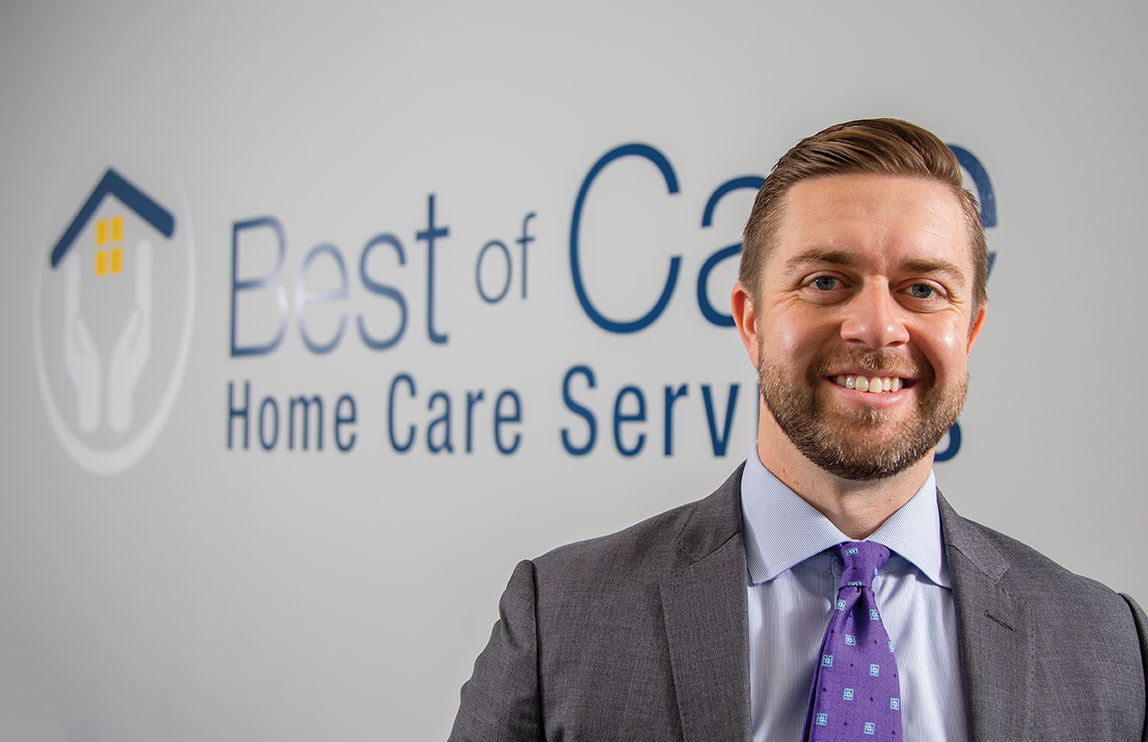
“There are always going to be enough clients. There will always be more clients than we can serve. The challenge is the workforce,” Smith said.
At the beginning of 2018, Smith began offering CareAcademy lessons for his firm’s 400 caregivers, who help more than 1,200 clients in their homes. Before then, caregivers completed their continuing-education requirement through traditional classroom instruction the company offered. Attending those classes was a transportation challenge and a scheduling problem for many caregivers. Now “they complete them way ahead of schedule because people can bang them out so quickly on their phones or computers,” Smith said.
It isn’t just the caregivers who did better. Smith found that taking instruction out of company classrooms and putting it on phones and tablets has freed up higher-skilled, more specialized employees, too. Registered nurses don’t spend time developing and delivering training. Human-resources staffers aren’t forced to chase caregivers and prod them to attend training.
“The previous training programs were always led by an RN who would develop the material and the schedule for the trainings,” Smith said. “And the human element of that was essential, because the face-to-face element of learning was critical, especially for a lot of our aides who speak English as a second language.
“But the flip side of that human element is that people were late. Sometimes people didn’t show up. It wasn’t always the best use of our time to have a nurse committed to three hours of training only to have some aides come in an hour or two hours late and miss the first half of the class. Then to try to get those people caught up on an individualized basis is another time suck.
“And on top of that, once those classes were completed, my human resource people were then gathering up the attendance rosters, tabulating who was there, how many hours they were there and how many hours they had left to complete on their annual training requirements. The lift for HR became more and more significant as the volume of aides grew,” Smith said.
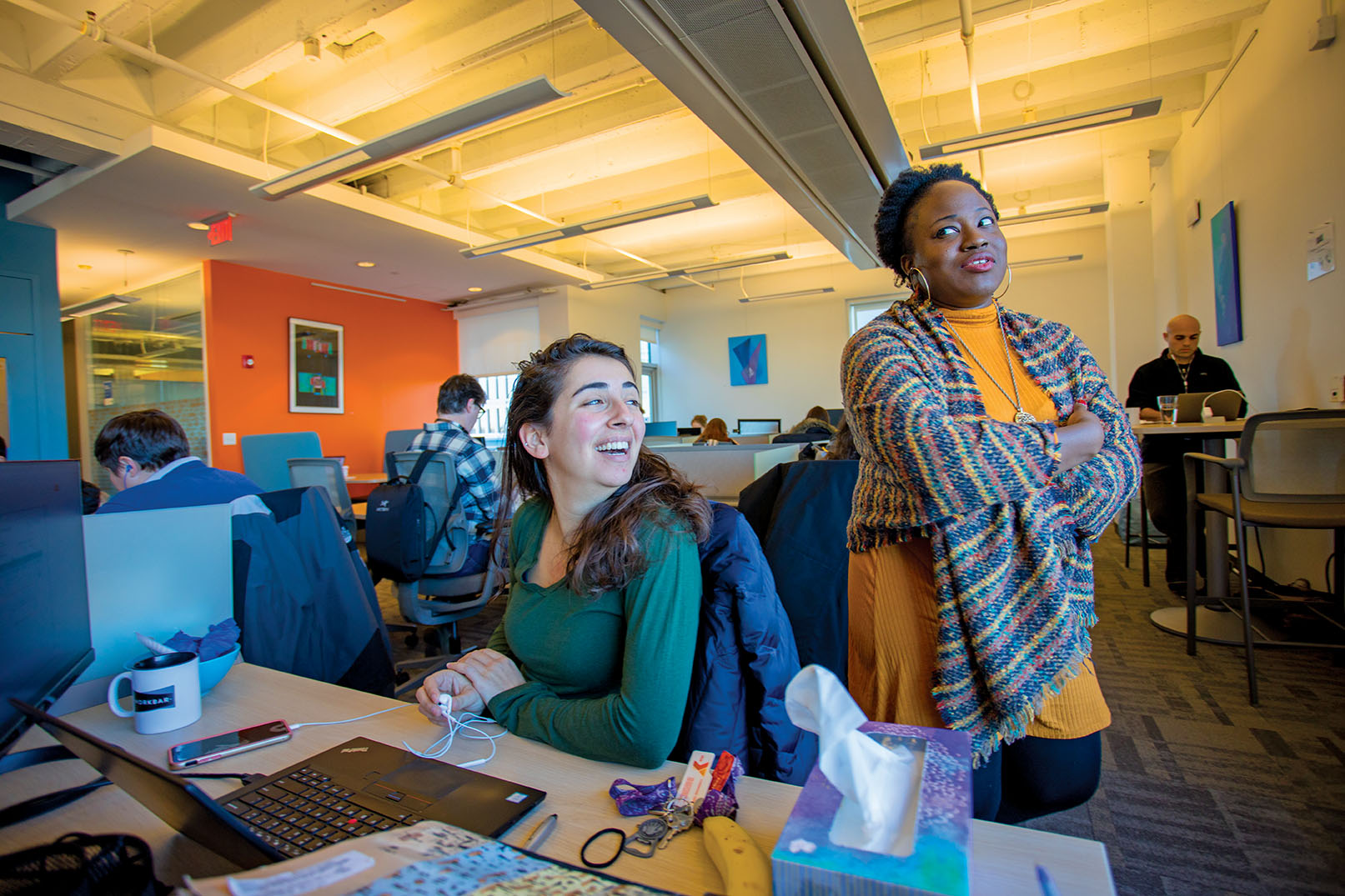
One of the aides who trains with CareAcademy materials is Jannah Muhammad, 27. As Adeosun herself did, Muhammad is helping pay her way through graduate school by working as a caregiver. Muhammad, who is pursuing a master’s degree in social work at Boston College, has an entrepreneurial streak as well; she hopes someday to direct a nonprofit or nongovernmental organization, or perhaps own her own home-health company.
She worked as a caregiver during her undergraduate years, so the required training is mainly review for her. Still, she finds it valuable.
“CareAcademy has been very useful at refreshing some of the skills I’ve had over the years. It helps me make sure I’m not forgetting anything and I’m doing the job to the best of my abilities,” she said.
“I’m definitely able to go at my own pace. I’m able to read up on things, or if I know something, I can go through it pretty quickly rather than sitting in a class. If I need to refresh myself, I can go back to a quiz I’ve taken already and re-review.”
The kind of things Muhammad finds herself reviewing might seem trivial, but they’re hugely important to caregivers and clients. An example Muhammad offered: “One of my clients was using a bedpan, so I went back to see which way to position the bedpan. If you don’t do it right, it’s not good.”
Trivial details? There’s no such thing when providing personal care for people who can’t care for themselves. Home-health workers not only cross thresholds of homes. These workers—who often are immigrants without advanced educations or middle-class security—often cross boundaries of religion, race, status, and language. Some of the instruction Adeosun has created for CareAcademy is designed to help them cross those thresholds more confidently.
The first class CareAcademy published was on professionalism and communication. Among its lessons, it spells out actions a home-health worker ought to take when first meeting a client.
Little things matter a lot
“In the first 15 minutes, I’m wiping my feet on your mat and asking you if it’s OK if I wear my shoes, because I’m deferring to you in your space,” Adeosun said. “I’m shaking your hand. I’m introducing myself by my first name. I’m also wearing a name tag, because I’m brand-new, and I don’t want you to struggle to remember my name. The first time we meet, I’m going over to the individual to introduce myself, making sure they’re comfortable.”
That’s only the beginning of her list, but it shows the depth of detail that helps Adeosun sell her curriculum to home-health companies and, indirectly, to the thousands of aides who take CareAcademy classes.
No one has influenced the development of that sales savvy more than her father, she said.
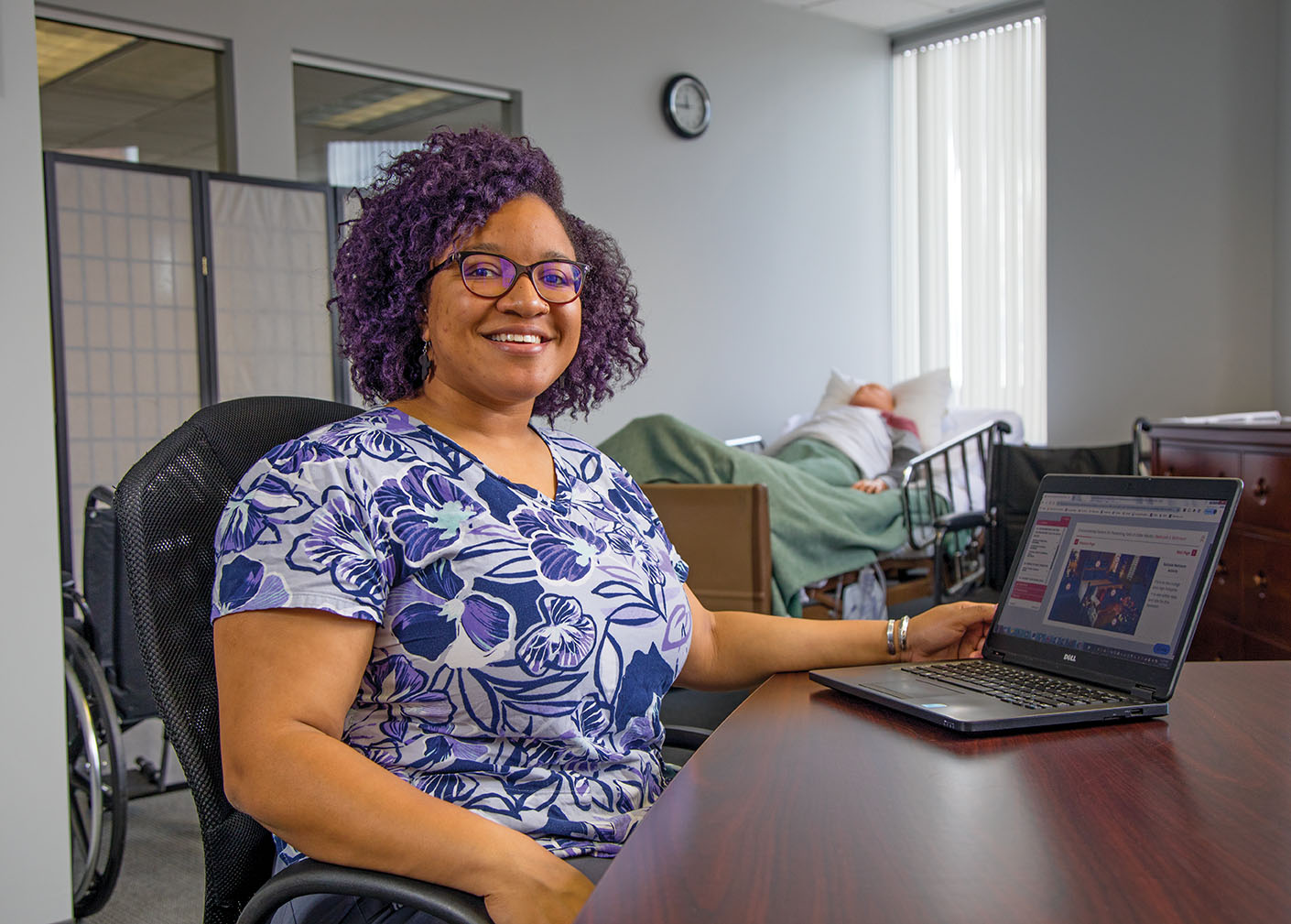
“I learned so much of how I enter a room and shape people’s desire to be a part of what we’re doing here at CareAcademy through him and by watching him and the coaching from him on how you talk to people—the art of selling, essentially,” she said.
He recalled some specific coaching he gave his daughter early in her career.
“She would ask me questions about ‘What if a person says no? What do you say?’ When she was a teenager! I explained to her that no doesn’t mean no, it just means that they need more information. If you push further and give them more information, maybe no is not no,” he said.
He seemed surprised that she credits him for these subtle touches, but maybe it’s not surprising. He said that, as a child, his daughter did much more listening than speaking.
“She would just come to my business with me, and she would observe. When she was young, people thought she was mute, because all she did was observe,” he said.
Since then, Helen Adeosun has found her voice, many times over in many arenas. Now she uses that voice to help entry-level health-care workers find the words—and knowledge and techniques and gestures and cultural cues—that equip them for the job of caring.
